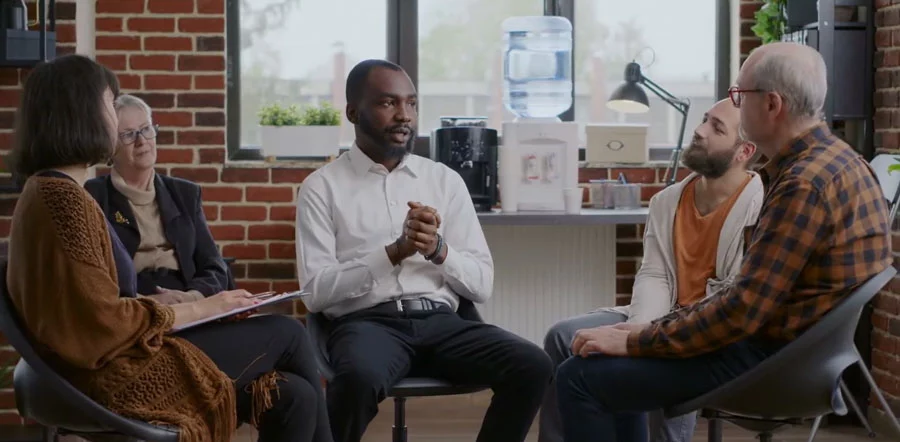Helping Someone with a Drinking Problem
Alcohol and drug use not only create a lot of problems for the user but for the family members as well. I did a lot of damage to my family through my alcohol dependence, and it took a lot of healing and bridge-rebuilding in order to make up for it.
I never realized the pain I caused until I got clean. After I attended Best Rehabs In Arizona Recovery for treatment, I learned how to love myself again and work on the issues that caused my addiction. When does alcohol abuse become a problem? Read more to find out how to pick up on the signs you should be looking out for.
Alcohol problems are a persistent issue in our society. Alcohol is a socially acceptable drug, so it is one of the easiest substances to get hooked on. Alcoholism can lead to serious life consequences and fractured relationships. It also takes a huge toll on your mental health. There is no way to understate how alcohol affects emotional and behavioral health.
Keep reading to learn more about how to help an alcoholic, from someone who struggled themselves and is able to speak from personal experience about the programs at Best Rehabs In Arizona.
Don’t Enable Their Behavior
If you have an alcoholic in your family, it is easy to enable their behavior. We don’t want to push people away, so often we will try and overlook certain issues. It’s important to try and offer emotional support, but you have to set healthy boundaries about alcohol for yourself. It’s hard to watch a loved one suffer, but you have a choice in taking on that suffering. You are only in control of your own life, and you can’t fix another person’s pain.
An addicted person will often feel threatened or judged if you push them too hard. It’s a difficult issue to bring up for someone who is suffering from an alcohol problem. You can’t change a loved one’s life unless they are willing to accept that change. It’s very tricky to guide someone through the process of getting clean.
Unfortunately, not everyone who suffers from alcohol abuse will get clean. This is just a fact of life, but it doesn’t mean you have to give up. Drinking alcohol to excess can greatly affect the brain and decision-making. You have to keep this in mind when you are trying to console an addict. You never know what can set someone off and feel triggered.
Knowing the Signs of an Alcohol Use Disorder (AUD)

There is certain behavior that people with an alcohol addiction will exude. People’s drinking habits will eventually show that they have a problem. If someone you know often drinks to excess, and their behavior changes for the worse when they are drunk, this is the beginning of a potential issue.
Alcoholics will often lie about their drinking as well. When you’re suffering from alcohol addiction or any form of an alcohol use disorder, for that matter, you will often try to hide it at the beginning. You will eventually get really get at hiding it as well. Alcoholics will go to great lengths to hide their drinking. This dishonesty can weigh heavy on your mind.
I always felt bad about myself when I was abusing alcohol. I was constantly lying and making people think I didn’t have as big of a drinking problem as I did. My family members knew something was wrong, but I never let them get close enough to see just how bad I had gotten. Closing yourself off can create a lot more issues and make it even harder to reach out when you finally do want to get help.
Binge Drinking: The Beginning of More Problems
I began binge drinking in college, and eventually developed an alcohol use disorder that slowly got worse and worse. I would only drink at night at first, but it was every night. Then I slowly began drinking earlier and earlier. By the time I was in my late twenties, I was waking up with a beer in my hand. It felt like it happened quickly, but it didn’t. Before I knew it, I needed alcohol to get through every hour of each day.
My alcohol abuse came on slowly. This is very common with all types of substance abuse. You don’t start off as a full-blown addict. The amount gradually increases and before you know it, you need the drug just to get by. My drinking problem eventually started affecting my personal and professional life as well.
I lost more than one job because of my drinking. I worked in a restaurant at one point and got fired for stealing alcohol. Even though my boss was angry, he tried to help. He told me I had an alcohol use disorder and it would only get worse if I didn’t stop drinking. You never want to believe the obvious when you are in that position. I knew he was right, but I lied to myself and blamed others for my issues. An alcoholic will look at everyone else as the problem before themselves.
The Red Flags that Your Loved One Has a Drinking Problem
I had one family member who had overcome their alcohol abuse through rehab and support groups. They noticed that I was going down the same path, even though I believed I was doing a good job of hiding it. It was hard for me to hide my desire for alcohol. If I didn’t have booze, I was a different person. I was irritable. I didn’t want to deal with any of life’s obstacles,
The signs are always there, and they are easy to pick up on for people who have a history of alcohol dependence. My other family members didn’t see what alcohol was doing to me, but this one person who had experience with alcohol abuse saw it right away. They were careful not to push me away, but they were blunt and honest about how bleak my future would be if I didn’t seek treatment.
There is no manual for how to help an alcoholic, but we do have effective ways of preventing drug abuse and getting help. Even with prior experience being an alcoholic, you never know what the best approach is. Every addiction is unique. Because I had mental health issues, this made my addiction much more tricky. Alcohol misuse already affects your brain in a negative way, so if you have a mental health disorder, it can require a lot more work.
Understanding Alcohol Addiction

Dealing with a loved one’s addiction is an emotional rollercoaster. You want to help them, but you often don’t know how. There are no magic words to get someone to quit drinking. Your loved one’s behaviors can be heartbreaking and extremely difficult to accept. A codependent relationship can make things even harder to work through.
You don’t want to enable your loved one’s addiction, but you can fall into it easily. It’s easy to start making excuses for a loved one’s alcoholism. You can begin to view them as a victim. The most important thing to come to grips with is it isn’t your fault. Alcohol abuse is a personal issue and it’s up to the alcoholic to seek treatment options.
Your loved one may get angry with you if you push them too hard to seek help. The most successful way to help them is to do some research. If you understand alcohol addiction, you will be better equipped to help someone get the help they need. If you have a family member who is addicted, you should learn a little bit about the dynamics of alcohol and drug abuse.
What Not To Say to an Alcoholic Loved One
Pushing someone too hard to seek professional treatment is the wrong approach. You can lightly nudge people, but you can’t be aggressive about it. If a friend or family member has an addiction, you need to respect their journey. People who want help will get help. You can’t force anyone to go into alcohol treatment.
Tough love is important, but it needs to be done cautiously. You have to take into consideration that an alcoholic’s mental health is usually a big factor in their suffering. Substance abuse comes from somewhere, and it is often the result of people trying to cover up past trauma or pain. The key is to engage in careful conversations.
My family always stressed to me that they weren’t trying to change me, but if I was ready to change myself, I could always seek addiction treatment no matter how bad my addiction was. I always appreciated that support and let them know that after I got sober. Encouraging a loved one to get help can be uncomfortable, but it can pay off big too.
Checking Insurance Coverage for an Alcohol Rehab
There are a lot of things to navigate when you decide to seek help. Figuring out your insurance and getting financial support is one of the worries that many people in recovery deal with. You go through many major life changes when you seek treatment, and it doesn’t have to all be so overwhelming.
There are a lot of ways to find financial assistance if you aren’t in a position to afford rehab. It’s much better to try and figure those things out than just deciding to not get help because you can’t figure it out financially. A lot of times legal trouble can get in the way too.
Finding effective treatment is possible as long as you are all in on getting clean. Stay calm and remain calm. You can get through this with a good head on your shoulders. The people at Best Rehabs In Arizona did a great job of helping relieve stress and get me through the process as comfortably as possible.
Supporting Your Loved One’s Recovery

When a loved one is seeking professional help, it’s important to be in their corner. Alcohol abuse usually requires intensive treatment and medical supervision during a detox. Alcohol detox is one of the most uncomfortable forms of detox. Alcoholism affects the body so greatly that alcohol detox can be deadly.
My alcohol withdrawal was brutal, and the symptoms nearly broke me. Luckily, I have a great family behind me who are extremely supportive and were my cheerleaders along the way. Even after the initial detox, my alcohol cravings were intense. Alcohol use disorder takes a big toll on your mind, so addiction treatment requires a lot of support.
I was greatly encouraged during my treatment, not just by my family, but by the medical professionals who helped me while I was recovering. All of the support I received was crucial in my recovery. With all the help I got, I was able to get back into a good place and use my platform to help others the way that I was helped.
What Happens in an Alcohol Rehab Center?
When you go to treatment, you have to expect the first few days to be uncomfortable. The detox is tough, but with the right people around you, you will be able to make it through to the next step of the process. Once you get through the detox, you’ve done a lot more than other people have.
The next part of the process revolves around getting your mental health back to where it needs to be. You have to start facing all of the problems that got you to where you have gotten. Substance abuse changes your brain and you need to pay a lot of attention to rebuilding a healthy, positive attitude.
A big part of recovery is speaking to others in recovery. Support groups make a world of difference on your journey. Even when you are out of treatment, finding the right support group is very important for your continuing recovery. You don’t get out of treatment completely healed. When you attend therapy and support groups, you up your chances of long-term recovery.
Avoid Bringing Alcohol into the Home
Developing coping mechanisms is crucial to your long-term recovery. During your initial sobriety period, you will need to avoid being around other people who are drinking. You should avoid bringing alcohol into your home and also let your loved ones know not to drink around you. This is the least they can do for you. If someone in your life doesn’t want to abide by this suggestion, then they are not willing to help you get clean.
It can be hard to end friendships or relationships that you had when you were drinking, but it’s just a part of life and the journey toward sobriety. You should only have relationships that benefit you. As hard as it can be to stop associating with friends who drink, it’s a lot harder to relapse and have to rebuild your sobriety.
Treating the Underlying Issue Before You Start Drinking Again

One of the underlying issues that lead to relapse can be finding yourself in these social situations. You can be tempted to drink if you are around people who are drinking and having a good time. You have to remind yourself that you’re not the kind of person who can have a good time drinking.
I know that my drinking was causing problems for me. I know that I can’t drink and have fun. If I drink, it will lead me down a dark path. Drinking is not something that I can associate with. Now that I’ve been sober for a while, I can be around a little bit of drinking, but I have to keep myself and check and remove myself from the situation if I feel triggered.
Supporting a Loved One Into Treatment
Family therapy sessions can go a long way in helping loved ones through alcohol use disorders. Addiction recovery is a very personal thing that requires a lot of individual therapy, but family therapy can give you a better idea of how your drinking affects everyone else around you.
Peer support groups and individual therapy keep you on track. When I go to a group meeting, I listen to everything my peers have to say. I also try and be as honest as possible about my own issues. There are days when I don’t feel great, and I may be more likely to relapse. Going to meetings reminds me that I can stay clean if I put in the work.
Alcoholism is selfish. A lot of alcoholics don’t understand this until they get clean. Professional treatment goes a long way in helping you realize what your drinking does to everyone else around you. Recovery is an ongoing process, and a learning process as well. When you are in therapy, talk honestly. It’s the best thing you can do for yourself.
The Right Destination for Help with Alcohol
If you or a loved one are struggling with an alcohol use disorder, consider looking at the treatment option. I know for me, Best Rehabs In Arizona in Colorado was where I was finally able to find my footing and get sober.
You or your loved one may want to reach out and get options as well, after all, it only takes a few minutes to get options for putting all the consequences of drinking in your rearview mirror for good. Give them a confidential call to find out more today, I know my life has changed since I did!



















